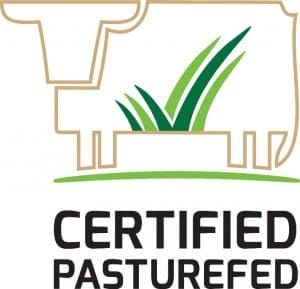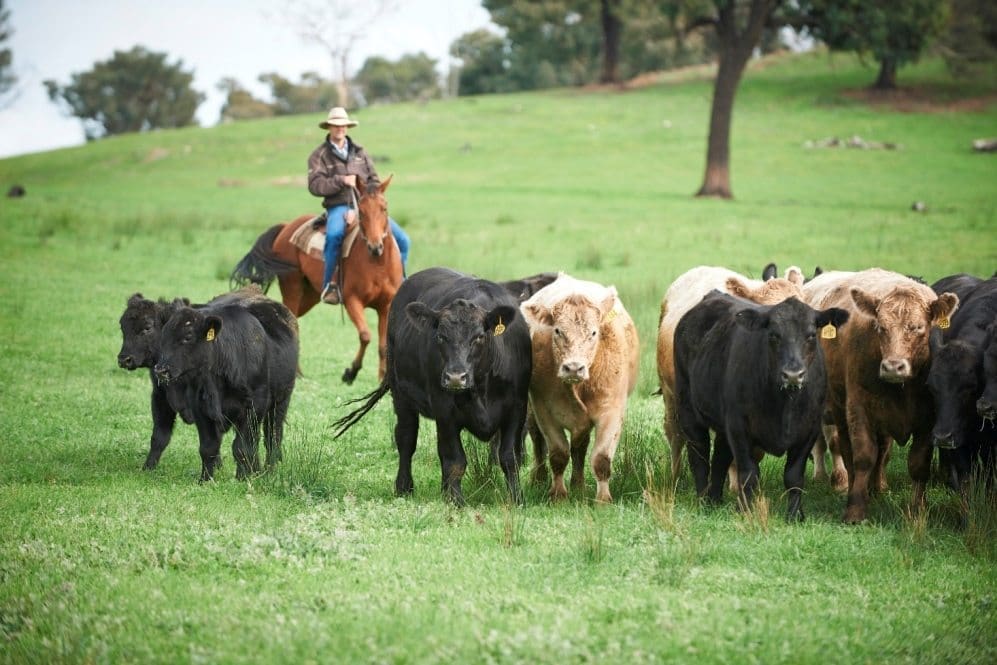THE pioneering, industry-initiated Pasturefed Cattle Assurance Scheme (PCAS) will cease to exist at the end of this year.
Auditing and certification body AusMeat has contacted stakeholders this week advising them that PCAS will be discontinued, after 12 years of operation.
 In what was a milestone achievement at the time, the grassfed beef industry through the Cattle Council of Australia initiated and launched the scheme as a means of providing price recognition for quality cattle produced under grassfed systems, and along with blanket use of Meat Standards Australia grading, a third-party audit system to underpin its integrity.
In what was a milestone achievement at the time, the grassfed beef industry through the Cattle Council of Australia initiated and launched the scheme as a means of providing price recognition for quality cattle produced under grassfed systems, and along with blanket use of Meat Standards Australia grading, a third-party audit system to underpin its integrity.
Prior to the launch of PCAS in April 2013, there was a gulf of difference between grain and grassfed finished cattle in price terms (click here to read Beef Central’s original article about the launch of PCAS).
But as history and MSA grading results have consistently shown, good quality MSA-graded grassfed cattle can produce eating quality outcomes every bit as good as grainfed. Indeed, annual MSA grading statistics for the 2023-24 year show that nationally, grassfed MSA cattle produced an average MSA Index score of 58.34 – virtually the same as the grainfed cattle index of 58.38. Widespread use of implants on grainfed cattle has an impact on index scores.
Producer participation dwindles
AusMeat advised stakeholders this week that the PCAS program will close, due to the small number of producers still participating in the accreditation process.
The decision to close the PCAS program in December in no way reflects negatively on the program or what it has delivered for the industry. It simply marks the fact that the industry has moved on, to company-managed grassfed/natural beef certification programs.
“The reduction in participation has directly coincided with the growth of company-owned branded grassfed claims,” Ausmeat told stakeholders this week.
Virtually all of Australia’s large beef processors killing grassfed cattle now have large certified grassfed/natural brand programs in place, all offering significant price premiums for eligible cattle. Some can be as much as 100c/kg over generic cattle of similar description.
The development of the PCAS standard and its role in providing a pathway for formal recognition of certified grassfed beef claims remains a credit to the former Cattle Council of Australia body (predecessor to today’s Cattle Australia), representing the grassfed beef sector.
CCA developed PCAS as an assurance program enabling the industry to prove claims relating to pasturefed or grassfed production methods. Sharp-eyed readers will recognise the similarity between the PCAS logo, and that of the old Cattle Council body.
Queensland beef producer Greg Brown was CCA president at the time.
He said there was a small group of producers within CCA ranks – mostly from Queensland, but also including people from Tasmania and NSW – who championed the development of PCAS.
“We faced a lot of initial resistance at the time,” he recalls. “Everybody said it couldn’t be done, and that grassfed cattle were too inconsistent.”
“But we’d all killed our own beef for the previous 40 years, and knew that the right grassfed beast, handled well, would eat exceptionally well.”
Producers like Ian McCamley and Howard Smith, both from Rolleston, were key players in the program’s development, Mr Brown said. The initial spark came through a humble resolution at an AgForce branch meeting somewhere on the Central Queensland coast, progressed through the state and national ranks until CCA took the project on.
“The industry today is in a far better place as a result of the advent of PCAS,” Mr Brown said.

Operational challenges
One of the operational challenges under PCAS was that producers, themselves, had to bear the cost of the annual audit. On top of that geographic distance provided challenges for auditors themselves.
Large processors recognised these obstacles, and quickly saw the opportunity to launch their own certification models, where they paid the producers’ audit cost (mostly still using independent third-party auditors), and provided ways to fast-track the cattle supply eligibility process.
That was the beginning of the end for the original PCAS model.
The significance of the PCAS program in establishing certified grassfed beef as a legitimate, premium beef segment cannot be over-stated. In many ways it laid the foundations for commercial grassfed/natural brands that followed.
It could be argued that today’s enormous and highly successful company owned farm-assured grassfed programs like Teys Grasslands, JBS Great Southern, NH Foods Manning Valley Naturally and Nature’s Fresh and TFI’s Angus Pure would not exist without the momentum provided by PCAS.
Teys was a foundation supporter of the program, launching its Grasslands brand program (currently undergoing a rebrand as Pasture Lands) soon afterwards. Thomas Foods International and Stanbroke joined the ranks of PCAS users in 2017.
Only the HW Greenham Never-Ever on-farm grassfed assurance standard established in Tasmania in 2012 pre-dated the launch of the PCAS system in the Australian industry.
While not all beef processors joined the PCAS program, it was clearly a catalyst for recognition and price discovery for better performing grassfed table meat. The program became the foundation for company-backed programs that followed.
JBS never joined the PCAS program, but instead established its own third-party audited farm-assured grassfed program in September 2013, five months after PCAS was born. The significant difference was that JBS itself picked up the producer audit cost.
JBS today runs what is arguably the largest certified grassfed beef program in the world, processing up to 4000 head per week week across multiple processing plants from Scone to Tasmania. .
Apart from a few isolated examples, the PCAS logo (pictured on this page) never made is way through the chain to retail – partly because end-users were not keen to promote the same pack logo as their competitors. A similar challenge was faced by MSA.
While the PCAS program’s original focus was squarely on assurances over feeding history, commercial users and brand owners quickly added to their claims around PCAS, including elements like HGP-free, antibiotic free and other traits. These quickly became standard in commercial grassfed brands.

Another very committed producer was Arcadia producer Justin McDonald